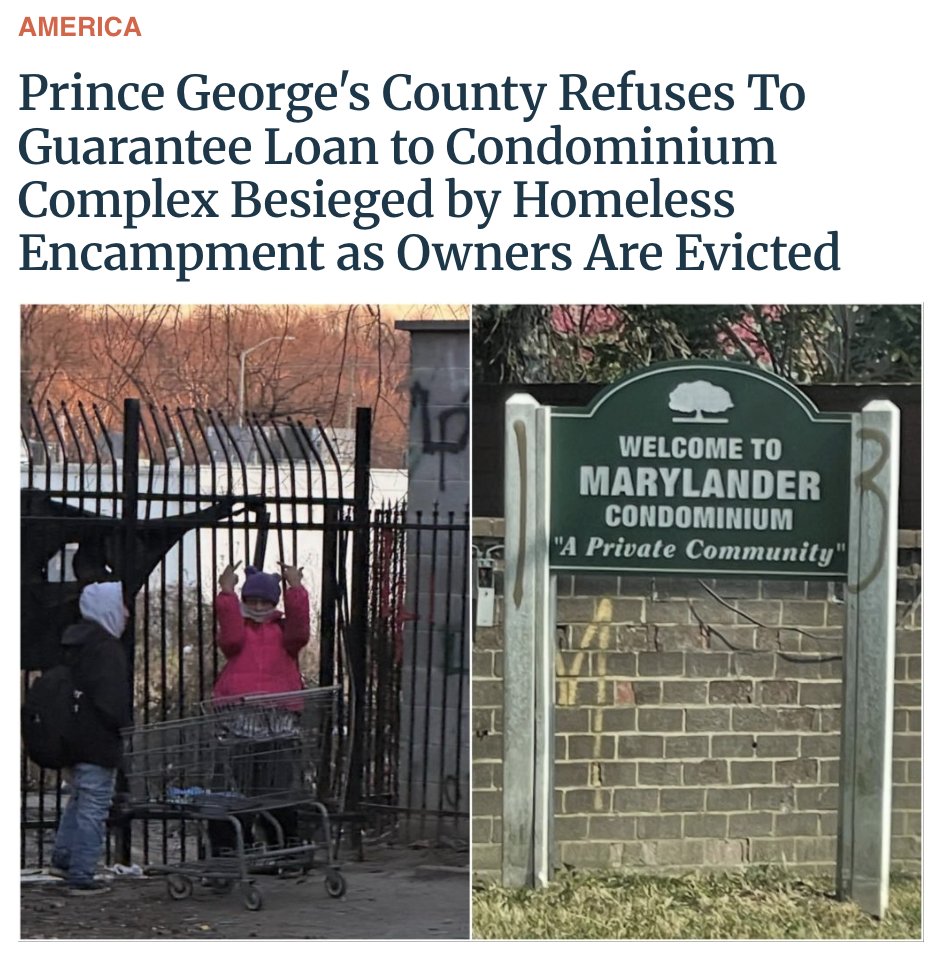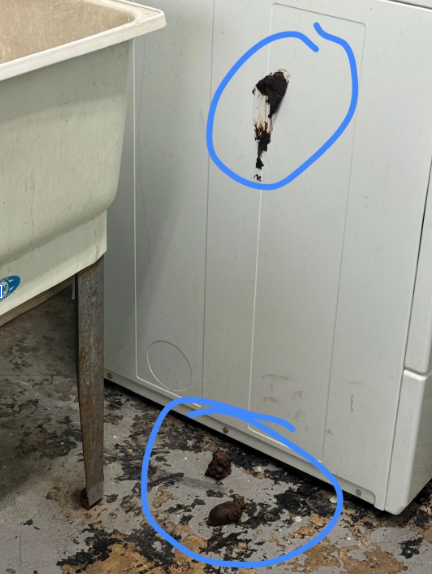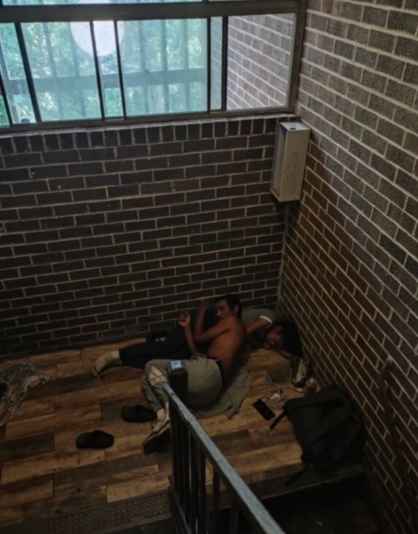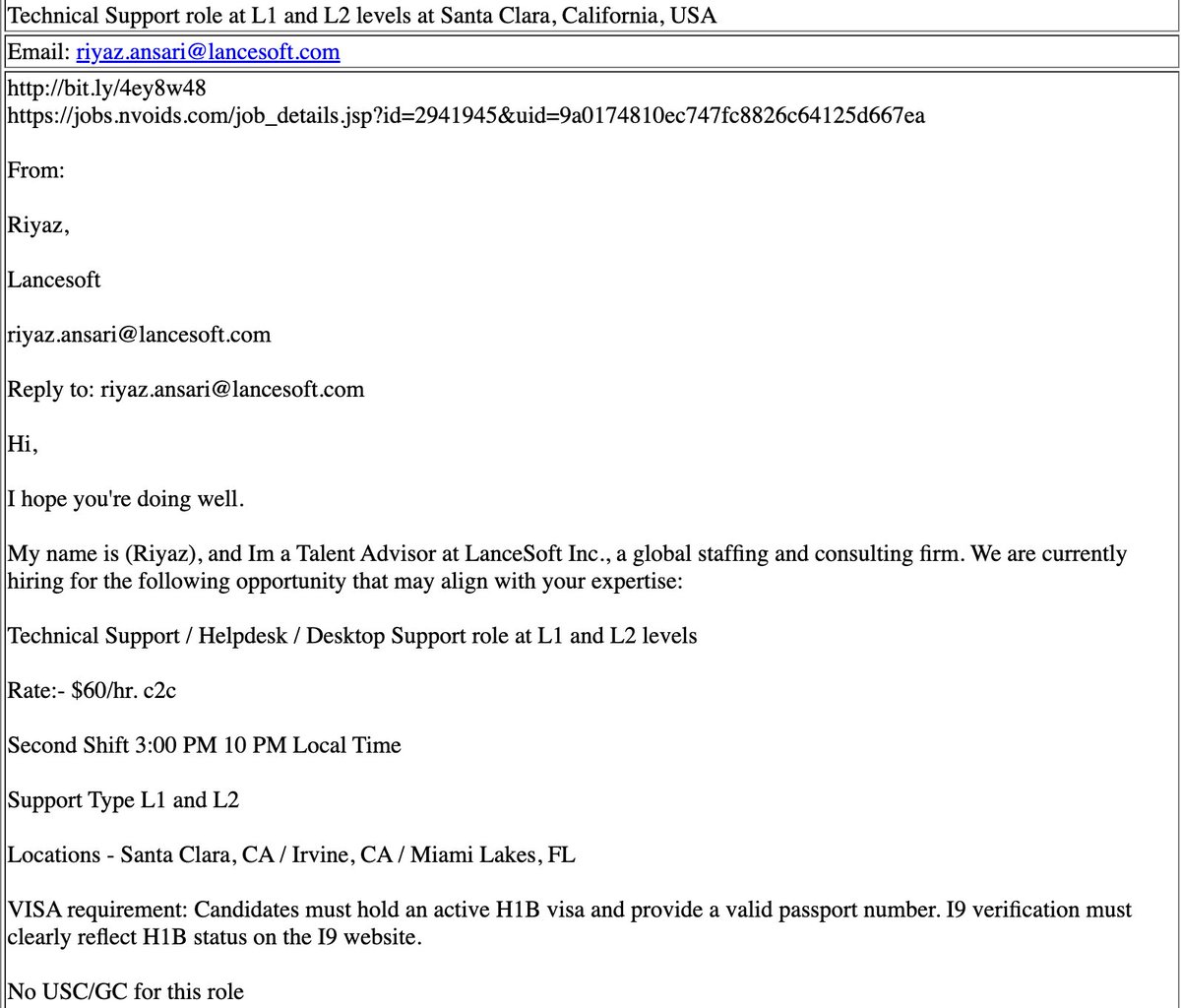NEW: The University of South Carolina required all students to affirm the value of "diversity and inclusion" as part of a mandatory training this summer.
Then, when I reached out for comment, USC claimed the training was "optional" despite telling students it was "required."🧵
Then, when I reached out for comment, USC claimed the training was "optional" despite telling students it was "required."🧵
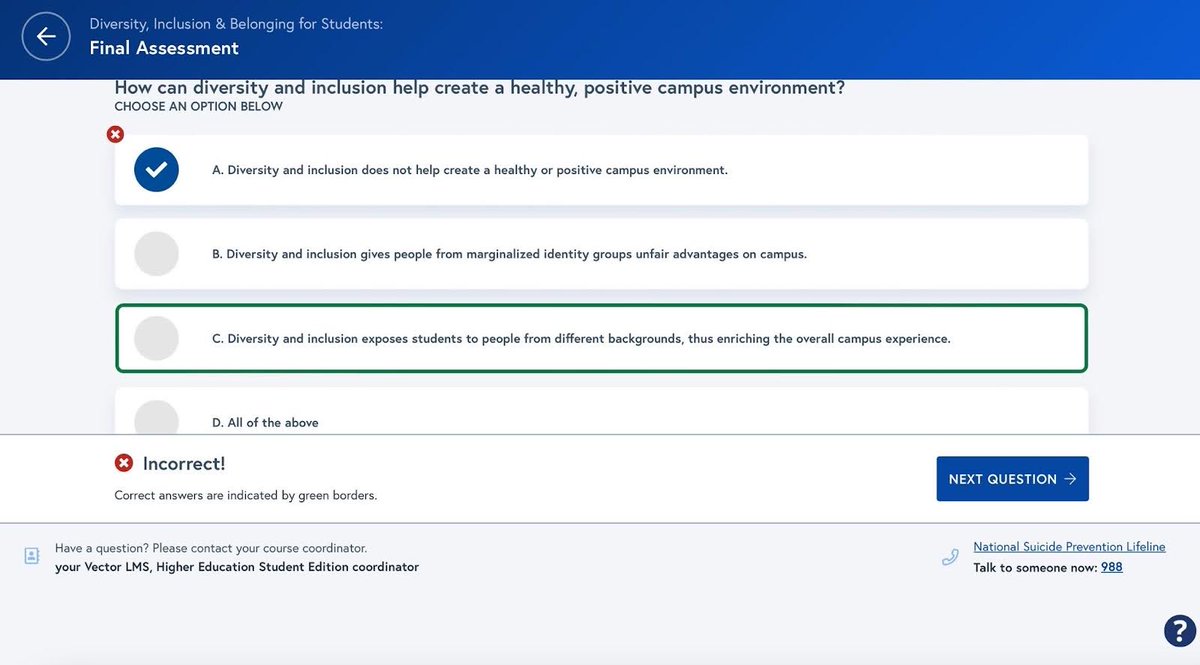
In a module on "Diversity, Inclusion & Belonging," which included 10 multiple choice questions, the training asked students how "diversity and inclusion help create a healthy, positive campus environment." 

Students who said these values do not create such an environment—or that they give "unfair advantages" to "people from marginalized identity groups"—were told that their answers were "incorrect." 

The right answer was that "diversity and inclusion exposes students to people from different backgrounds, thus enriching the overall campus experience."
Though students could complete the module without answering every question correctly, they needed at least an 80 percent—on a quiz with just 10 questions—to pass the training and register for classes, according to the screenshots from the training. 

When I asked USC about this, a university spokesman, Jeffrey Stensland, claimed the diversity module was "optional, not mandatory," and that students only needed to complete units on alcohol and sexual assault.
But an online portal for USC’s 35,000 students says otherwise, indicating the diversity unit is "required" for all undergraduates. 

USC also warned students in emails that "registration holds will take effect if you do not complete" the module, which was offered through an outside vendor, Vector Solutions, and includes lessons on "allyship," "privilege," and "cultural appropriation." 

"You are receiving this email because you have not yet completed all of the Required Community Education modules," the emails read. "Completion of your courses is required for all students at the University of South Carolina."
Sure doesn't sound optional to me!
Sure doesn't sound optional to me!
The requirements could set back a yearlong campaign by USC to preempt the sort of controversies that have embroiled higher education amid a wave of anti-Israel protests, which amplified critiques of campus DEI programs and sparked heated debate about free speech.
Under pressure from state lawmakers, USC last year renamed its top diversity office to avoid the terms "diversity," "equity," and "inclusion."
With tensions rising over the Oct. 7 attacks, it also promised in a press release to "strengthen its free speech expression policies" and promote "a variety of opinions and ideas"—commitments that earned the university a top rating for free speech from FIRE this year.
"USC went above and beyond to make its campus friendly to free expression," FIRE’s Mary Griffin said in a statement.
"Not only did the institution seek to ensure its written policies aligned with the First Amendment, but it also prioritized communicating the importance of free expression as a valued principle to students, faculty, and staff."
The training, which also included a module on mental health, suggests some leaders at USC didn’t get the memo.
The training forced students to affirm a range of propositions aimed at policing speech and micromanaging relationships, docking points for answers deemed insensitive or prejudiced.
One true/false question, for example, indicates that students should not support a "friend in need" by suggesting that exercise will help them feel better. 

"While you may want to offer positivity or ideas on how they can move forward, now might not be the best time or place," the correct answer reads. "Rather than offering advice, try simply validating their feelings." 

Another question asks what students should do if they "have a great idea for a costume" but are "concerned about cultural appropriation." 

Dismissing the concerns as "not that serious"—even if nobody from the relevant culture will be at the party—is "incorrect," according to the training. Instead, students should "educate" themselves through online research to determine whether the costume is acceptable. 

Still another question asks why students might not learn about the "experience of the LGBTQIA+ community" before arriving at college. 

Incorrect answers include "there wasn’t enough time in high school to cover LGBTQIA+ perspectives" and "this probably wasn’t an intentional or deliberate decision to exclude." 

To get the question right, students must affirm that "history is frequently told through the lens of those in charge rather than those from marginalized identity groups." 

Schools across the country have required similar trainings. A Title IX training at BU forced faculty to affirm that people "rarely" make false accusations of sexual assault, while a Harvard Title IX training told students that "using the wrong pronouns" can constitute "abuse."
At USC, the multiple-choice quiz penalized students who said that refusing to use a roommate’s preferred pronouns did not constitute bigotry. 

Students were also dinged for saying that it would be best to let a Jewish roommate stand up for himself if a "mutual friend" were "making fun" of his "religious headwear." 

"Pull them aside later to educate them on why their comments may have been offensive," the training enjoins. 

Stensland, the university spokesman, said the quiz was "not intended to reflect university policy" but rather "encourage student reflection."
Pressed on why the "optional" module had been listed as a requirement, he promised in an email to "follow-up with our team to ensure the information sent to incoming [students] is accurate."
"I appreciate you bringing this to our attention," he wrote.
"I appreciate you bringing this to our attention," he wrote.
Read the full piece—complete with quotes from Speech First's @cherisetrump—here: freebeacon.com/campus/univers…
• • •
Missing some Tweet in this thread? You can try to
force a refresh


